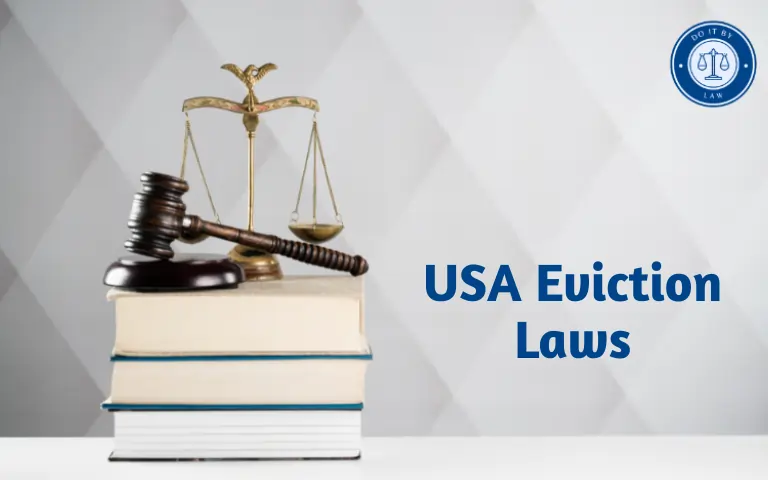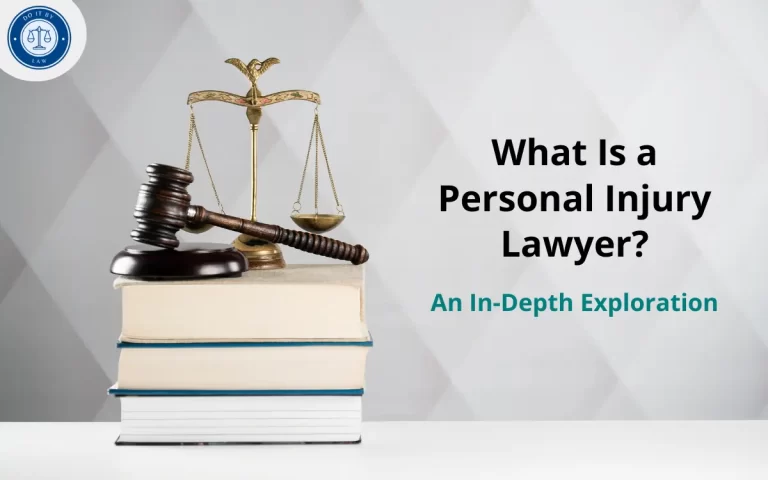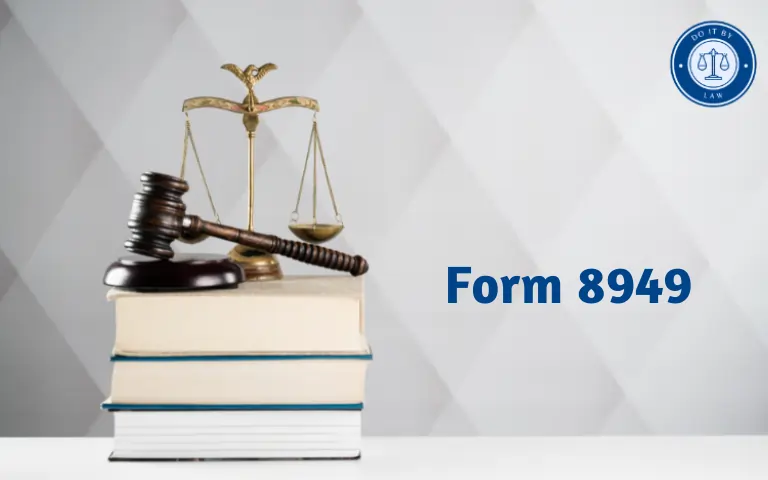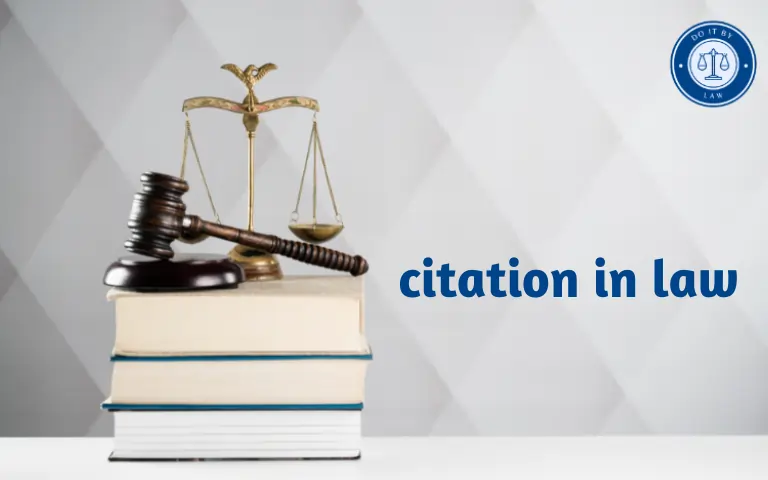Understanding USA Eviction Laws: A Comprehensive Guide
Eviction laws in the United States play a crucial role in maintaining a balance between landlords’ rights and tenants’ protections. Whether you’re a property owner or a renter, understanding these laws is essential. In this blog, we’ll delve into the specifics of eviction processes, legal reasons for eviction, and the rights of both parties. Let’s explore the intricacies of USA Eviction Laws and empower ourselves with knowledge.
overview of eviction laws
Here’s a concise overview of eviction laws in the United States:
- Reasons for Eviction:
- Landlords can evict tenants for various reasons, which may vary by state. Common grounds for eviction include:
- Expiration of the rental lease: After the lease term ends, landlords may choose not to renew it, leading to eviction.
- Nonpayment of rent: If tenants fail to pay rent on time, landlords can initiate eviction proceedings.
- Lease violations: Landlords may evict tenants for violating lease terms (e.g., unauthorized pets, property damage, noise violations).
- Illegal activity: Conducting illegal activities on the premises can be grounds for eviction (e.g., drug-related offenses, and violence).
- Each state has its regulations regarding what constitutes “illegal activity” for eviction purposes.
- Landlords can evict tenants for various reasons, which may vary by state. Common grounds for eviction include:
- Notice Requirements:
- Most states require landlords to provide written notice before starting the eviction process.
- The notice typically gives tenants a specific period to:
- Pay past-due rent.
- Correct lease violations.
- Move out.
- Eviction Process Steps:
- While specifics vary, the general eviction process includes these steps:
- Lease Expires or Is Violated: The lease ends, or a violation occurs.
- Notice to Vacate or Correct Violation: Landlords issue a notice to tenants.
- Tenant Fails to Comply: If tenants don’t move out or correct the violation, landlords proceed.
- Landlord Files Eviction Action: Legal action is initiated.
- Court Decision: The court determines whether the tenant must vacate.
- Tenant Evicted: If necessary, the tenant is evicted.
- While specifics vary, the general eviction process includes these steps:
Remember that specific details and timelines can vary by state, so it’s essential to consult local laws and regulations.
Why You Need to Understand Eviction Laws
Understanding eviction laws is crucial for both landlords and tenants. Let’s explore why:
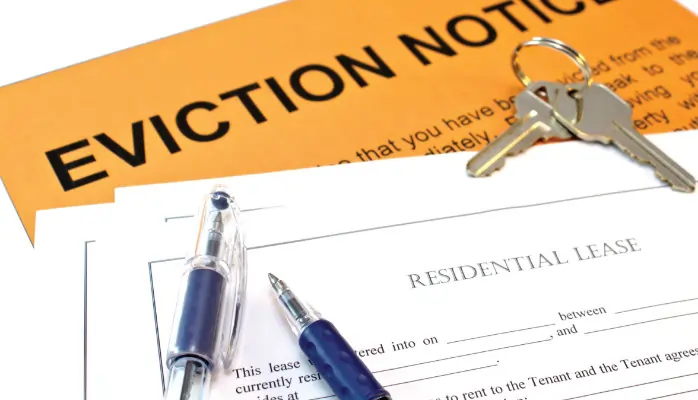
- For Landlords:
- Legal Compliance: Familiarity with eviction laws ensures landlords operate within legal boundaries. Violating these laws can lead to penalties, lawsuits, or delays in eviction proceedings.
- Efficient Process: Knowing the correct steps streamlines the eviction process. Landlords can promptly address issues like nonpayment of rent or lease violations.
- Avoiding Mistakes: Understanding notice requirements prevents mistakes. Providing proper notice protects landlords’ rights and helps maintain a professional relationship with tenants.
- Risk Mitigation: Awareness of legal grounds for eviction minimizes risks. Landlords can make informed decisions based on valid reasons.
- For Tenants:
- Rights and Protections: Knowledge of eviction laws empowers tenants. They can assert their rights, challenge wrongful evictions, and seek legal assistance if needed.
- Response to Notices: Understanding notice periods allows tenants to plan. They can negotiate with landlords, pay overdue rent, or find alternative housing within the specified time.
- Avoiding Unlawful Evictions: Awareness prevents illegal evictions. Tenants can recognize when landlords violate their rights and take appropriate action.
- Access to Legal Aid: In case of disputes, tenants aware of their rights can seek legal aid promptly.
In summary, understanding eviction laws promotes fairness, transparency, and smoother interactions between landlords and tenants. Both parties need to stay informed and comply with legal requirements.
Common Grounds for Eviction
Let’s delve deeper into the common grounds for eviction in the United States. Landlords can legally evict tenants based on several valid reasons, which are generally upheld across most states:
- Late Rent:
- Most Common Reason: Late rent occurs when the tenant fails to pay rent by the specified due date in the rental agreement.
- Legal Rights: Landlords have the right to issue a pay or quit notice to the tenant. This notice gives the tenant a chance to pay overdue rent or vacate the premises.
- Grace Period: The grace period for payment varies by state (e.g., 7 days in Alabama and Texas, 5 days in Nevada and Arizona, and 10 days in North Carolina).
- Lease Agreement Violation:
- Examples:
- Allowing someone not on the lease (e.g., a relative or love interest) to live in the unit.
- Violating parking rules outlined in the lease agreement.
- Disturbing neighbors with loud music or other disruptive activities.
- Legal Action: Landlords can issue a compliance or quit notice to address lease violations. The tenant has a chance to correct their behavior.
- Examples:
- Illegal Use:
- Grounds for Eviction:
- Gang activity.
- Possession, sale, or manufacturing of controlled substances.
- Other criminal activities (e.g., domestic abuse, assault, murder).
- State-Specific Regulations: Each state defines what constitutes “illegal activity” for eviction purposes.
- Grounds for Eviction:
- No Longer Renting:
- Expiration of Lease:
- If the lease term ends and the tenant does not renew it, landlords can initiate eviction proceedings.
- Notice periods vary (e.g., 7 days for week-to-week tenants, 30 days for month-to-month tenants).
- Landlord’s Decision: Even if the lease hasn’t expired, landlords can choose not to renew it.
- Expiration of Lease:
- Rehabilitation, Demolition, or Sale:
- Landlord’s Need:
- If landlords need the property for personal use, business purposes, or family members, they can serve an eviction notice.
- Proper documentation supporting the reason is essential.
- Landlord’s Need:
Remember that specific laws and procedures may vary by state, so it’s crucial to consult local regulations for accurate guidance.
The Eviction Process under Eviction Laws
The eviction process in the United States can vary slightly from state to state, but there are common steps that landlords and tenants typically follow. Let’s delve into the details:
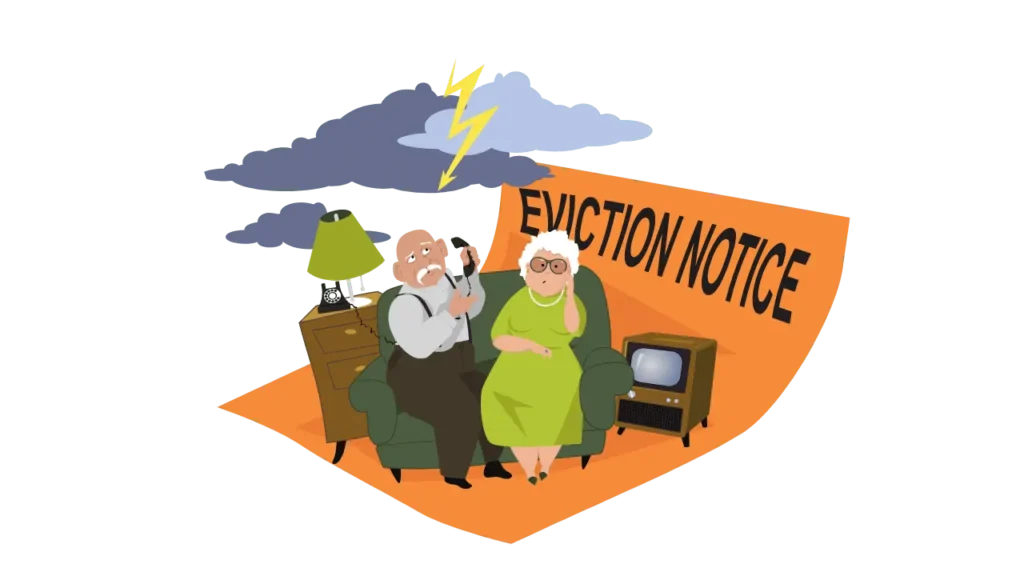
- The Lease Expires or Is Violated:
- Landlords can evict tenants for various reasons, depending on state laws. Common reasons include:
- Expiration of the rental lease: After the lease term ends, a landlord may choose not to renew it, leading to eviction.
- Nonpayment of rent: If a tenant fails to pay rent on time, eviction may ensue.
- Lease violations: These could involve unauthorized pets, property damage, noise violations, or other breaches of the lease agreement.
- Illegal activity: Conducting illegal activities on the premises (such as drug-related offenses or violence) can lead to eviction.
- Landlords can evict tenants for various reasons, depending on state laws. Common reasons include:
- Notice to Vacate or Correct Lease Violation:
- Most states require landlords to provide written notice to tenants before initiating eviction proceedings.
- The notice typically gives tenants a specific period to:
- Pay overdue rent.
- Rectify lease violations.
- Move out.
- Tenant Fails to Comply:
- If the tenant doesn’t address the issue within the specified time frame, the landlord can proceed with eviction.
- Landlord Files an Eviction Action:
- The landlord initiates legal proceedings by filing an eviction lawsuit in court.
- The court will review the case and make a decision.
- Court Decision:
- The court evaluates evidence, hears both parties and determines whether the tenant must vacate the property.
- If the court rules in favor of eviction, the tenant receives an eviction order.
- Tenant Eviction:
- If the tenant still doesn’t leave voluntarily, the landlord can enforce the eviction order.
- Law enforcement may assist in physically removing the tenant from the property.
Remember that specific details and timelines can vary based on the state in which the eviction occurs. Landlords and tenants need to understand their rights and obligations under local eviction laws.
Tenant Rights and Protections
Let’s explore tenant rights and protections in the United States. These rights vary by state, but I’ll provide a general overview:
- Right to Safe and Habitable Housing:
- As a tenant, you have the right to live in a property that is safe, well-maintained, and in good repair.
- Landlords are responsible for addressing structural issues, ensuring proper sanitation, and maintaining essential utilities (such as water, electricity, and heating).
- Security Deposits:
- When you move into a rental property, landlords often require a security deposit.
- Tenant-related laws dictate the maximum amount that can be charged as a security deposit.
- Landlords must refund the deposit at the end of the tenancy, minus any legitimate deductions for damages.
- Rental Agreements:
- A rental agreement is a legally binding contract between you and the landlord.
- It outlines terms such as monthly rent, security deposit, duration of the tenancy, and maintenance responsibilities.
- Review the rental agreement carefully before signing to ensure fairness and compliance with applicable laws.
- Notice Requirements for Eviction:
- Landlords must give written notice before initiating eviction proceedings.
- The notice specifies the reason for eviction (such as nonpayment of rent or lease violations) and provides a certain time frame for corrective action or moving out.
- Protection Against Arbitrary Eviction:
- Tenants are protected from eviction without valid reasons.
- Common valid reasons include lease violations, nonpayment of rent, or the expiration of the rental lease.
- Tenant’s Right to Privacy and Security:
- You have the right to privacy within your rented space.
- Landlords cannot enter your unit without proper notice, except in emergencies.
- Challenging Excessive Charges:
- If you believe you’re being charged excessively (e.g., unreasonable fees), you have the right to challenge those charges.
Remember that specific tenant rights and protections can vary based on state laws. It’s essential to familiarize yourself with the regulations in your specific location to ensure you’re aware of your rights and responsibilities.
Understanding eviction laws is crucial for both landlords and tenants. Let’s recap the importance and encourage seeking legal advice:
- Importance of Knowing Eviction Laws:
- Legal Compliance: Eviction laws outline the proper procedures for landlords and tenants. Knowing these laws ensures that both parties follow the correct steps during an eviction process.
- Rights and Protections: Tenants need to be aware of their rights, such as protection against arbitrary eviction, privacy, and safe living conditions. Landlords must understand their responsibilities to avoid legal pitfalls.
- Avoid Costly Mistakes: Ignorance of eviction laws can lead to costly mistakes, delays, or even lawsuits. Knowing the rules helps prevent unnecessary disputes.
- Encouraging Legal Advice:
- Landlords:
- If you’re considering eviction, consult with a real estate attorney or legal professional. They can guide you through the process, ensuring compliance with local laws.
- Seek advice on drafting proper notices, filing eviction actions, and handling court proceedings.
- Tenants:
- If you receive an eviction notice, don’t panic. Seek legal assistance promptly.
- Consult with a tenant rights organization or an attorney to understand your options, respond appropriately, and protect your rights.
- Legal aid services may be available for low-income tenants.
- Landlords:
Eviction situations can be emotionally charged, and professional legal advice can make a significant difference. Whether you’re a landlord or a tenant, seek legal counsel to navigate eviction proceedings effectively.

